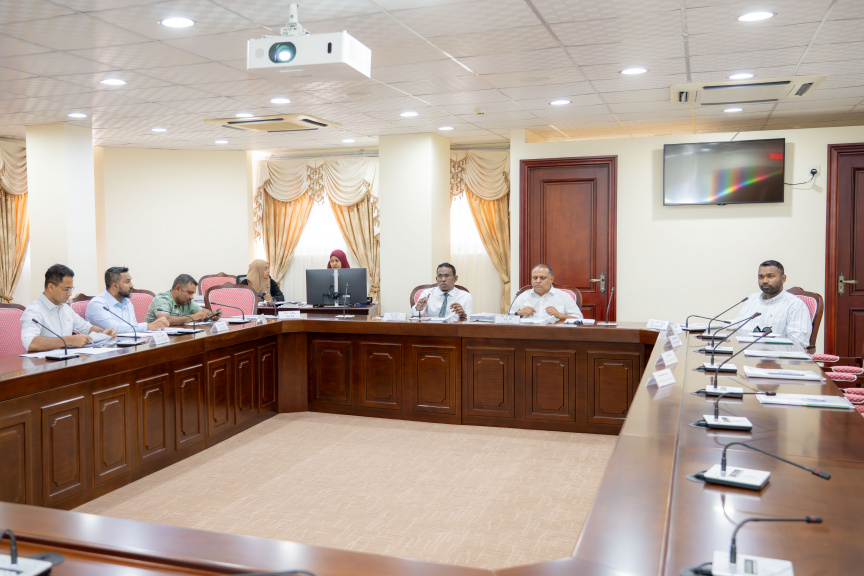
Independent Institutions Committee convenes for a meeting on the media control bill on September 10, 2025. (Photo/People's Majlis)
The Parliament’s Independent Institutions Committee has also barred the press from Wednesday’s meeting to review a contentious media bill that would grant the government significant control over the media.
On August 18, Thulhaadhoo MP Abdul Hannan Aboobakr, an independent lawmaker aligned with the government, submitted a bill that seeks to dissolve the Maldives Media Council (MMC) and the Broadcasting Commission of Maldives (BroadCom), replacing them with a single regulatory body — a seven-member Maldives Media and Broadcasting Commission (MMBC), composed of four members elected by the media and three appointed by the President of the Maldives with parliamentary approval, with the President also given the authority to appoint the commission’s head. It also empowers the MMBC to impose major penalties against media outlets as well as individual journalists, including during the investigative stage.
The bill, widely panned both local and international journalism groups, is openly backed by the People’s National Congress (PNC) administration. Parliament, which is currently in recess, held an extraordinary sitting amid protests on August 27, during which the ruling party used its supermajority to accept the bill and send it to the Independent Institutions Committee for review.
The Committee convened or a meeting to review the bill on Tuesday which the press was barred from.

At the beginning of a committee meeting to review the bill on Tuesday, Thulusdhoo MP Ibrahim Naseem presented a motion to hold the meeting behind closed doors, citing concerns over the leak of private information of members of the general public who submitted their opinion on the bill.
He said that it is in public interest to bar the press from the meeting in order to protect the privacy of ordinary citizens.
The motion passed with the unanimous consensus of the committee, despite protests from the journalists who were already at the meeting room to cover it. Subsequently, the journalists protested outside the Parliament building.
Both the members of the MMC and the BroadCom, as well as media representatives, who were summoned to the committee last week, spoke against the bill.
In addition to allowing the President power over appointment of its members, the new bill also empowers the proposed commission to impose major penalties against media outlets as well as individual journalists, including during the investigative stage. This includes:

Following mounting pressure over the contentious provisions, President Dr. Mohamed Muizzu insisted that his administration remains “100 percent pro-media” and has no interest in controlling the press. He said that the administration would recommend amendments to the bill through the Attorney General’s Office, but has not committed to instructing the withdrawal the bill – as is demanded by journalists.